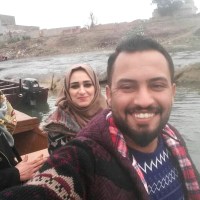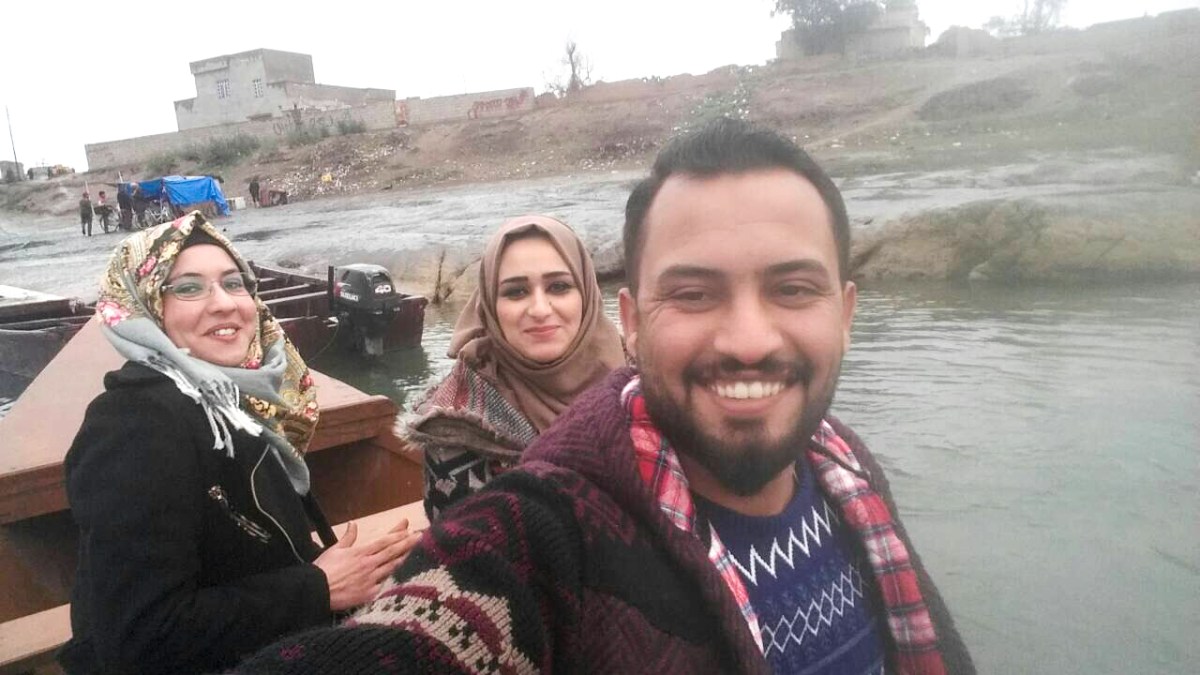Nurse Maha, Dr. Ilham and Dr. Abdulqadir commute each day across the Tigris River, to get to the medical clinic. It only takes 5-10 minutes to make the crossing, depending on the speed and height of the water. But heavy Spring rains sometimes make the commute treacherous.
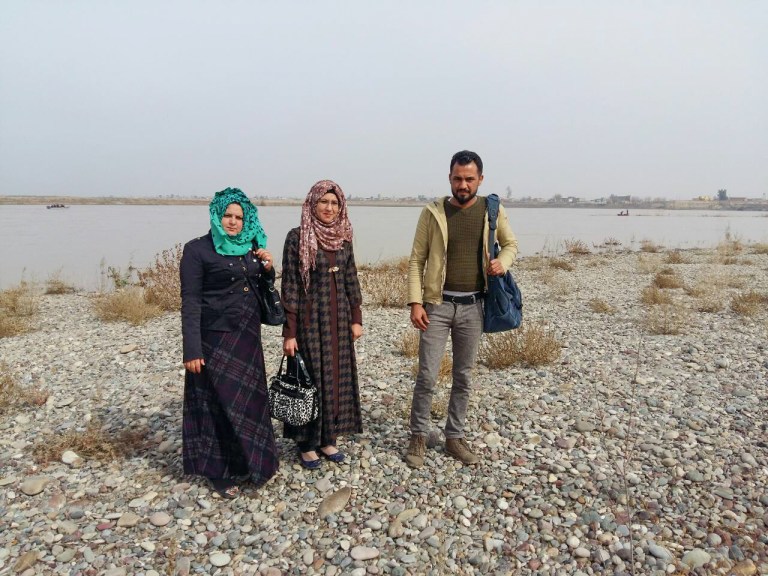
Drownings in the river are not uncommon.
“It is the most difficult day since the beginning of our voluntary work. The road is rough after the rainstorm, and the flood of the river, and it’s very difficult to cross.”
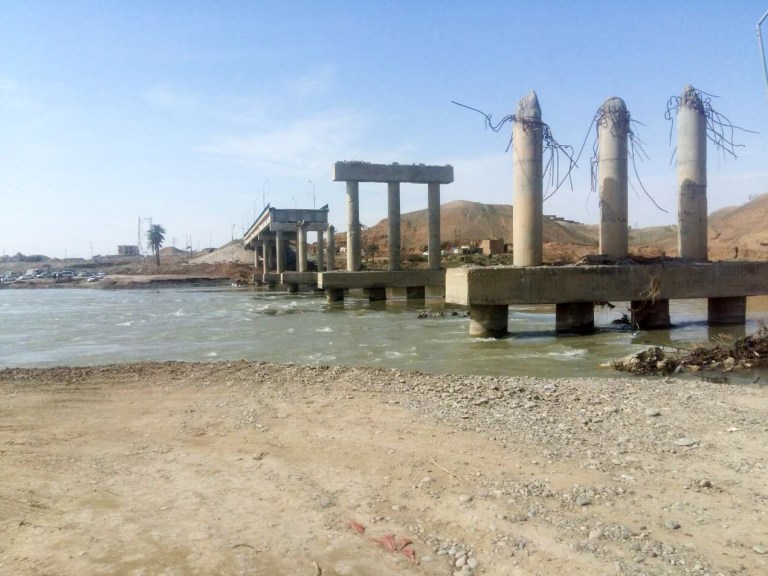
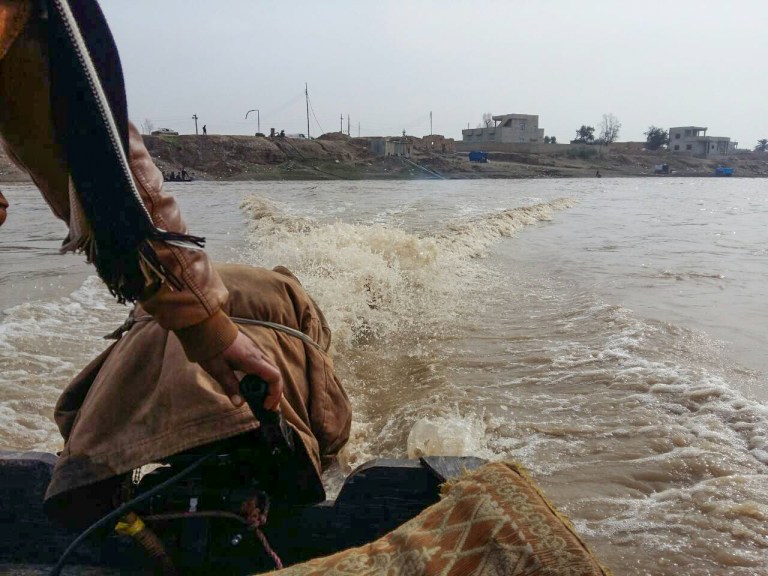 The team crosses the river twice a day despite the danger, the rain and the cold.
The team crosses the river twice a day despite the danger, the rain and the cold.
What keeps them coming back day after day? Because there are patients who only have access to healthcare because they show up.
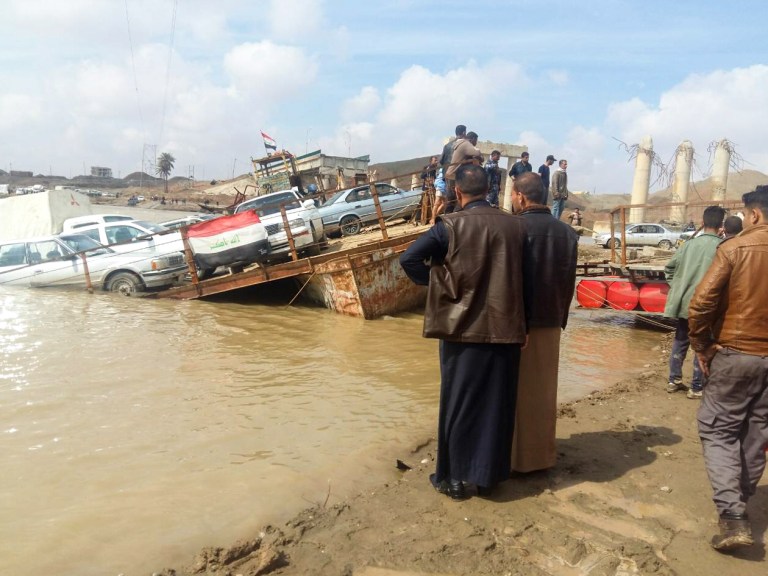
“When we wanted to cross the river by ferry, we were shocked today by the sinking of a ferry in the river.” Dr. Abdulqadir’s daily updates from the primary health center usually include details like the number of patients seen, their ages, and the treatments he gave. But some days -living in a community just starting to get back on its feet after the war with ISIS- don’t go as planned.
The medical team that works at one of the primary health centers you support, 100 km south of Mosul, has a commute that includes crossing the Tigris River.
The trip is complicated by the fact that both bridges that used to connect the two sides of the city were destroyed by bombs in the war with ISIS.
“Oooh God!! I feel very scared when I ride this dilapidated ferry carrying more than 8 cars!”
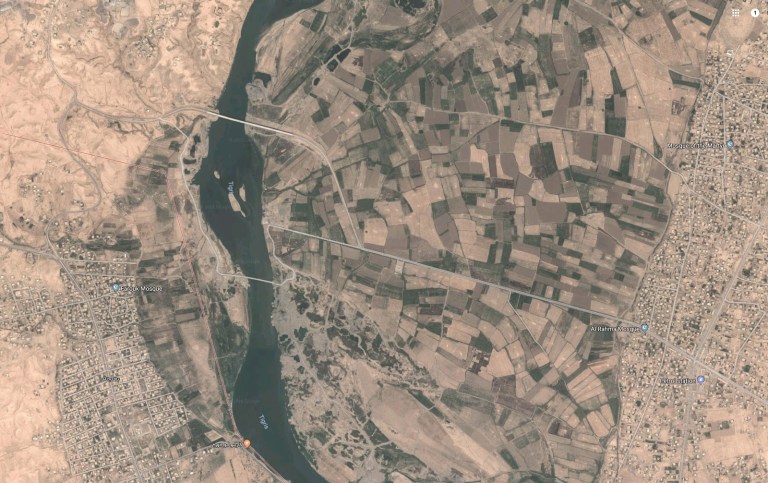
The city developed in two parts—homes and commercial districts seem to embrace the river and rich agricultural area when seen from above. The photo above was taken before the two main bridges were destroyed: before this part of Iraq was captured by ISIS in 2014, and before 160,000 people were displaced from their homes.
Iraq is roughly divided in three sections–top to bottom–by the Tigris and Euphrates rivers. The only way to navigate the land is to navigate the water.
This explains why bridges are some of the first targets hit during war—taking out necessary infrastructure makes the movement of troops difficult, and the old way of life impossible.
It’s been two years since the city was liberated from ISIS, and since the city was promised a temporary floating bridge. Residents are still waiting—this hasn’t place hasn’t been deemed a priority for reconstruction. So residents cross the muddy river with a tiny armada of ancient ferries and motor boats.
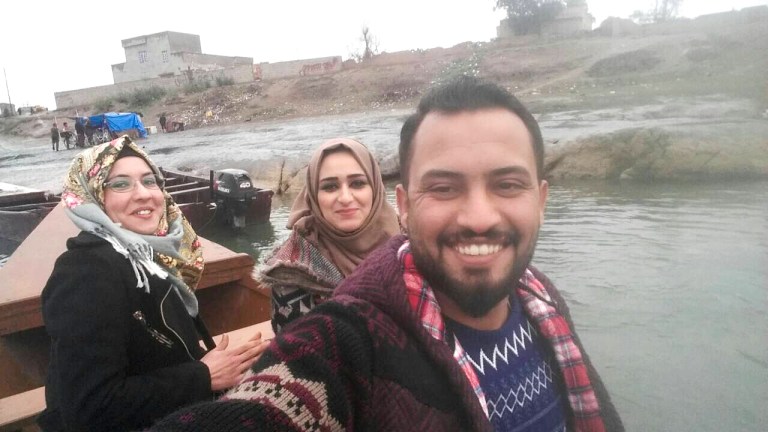
“Yes, It was a difficult day” Dr. Ilhaam explained.
“But when you reach the health center and see your patient, and they tell you that they got better [after their treatment], you forget all tiredness.”
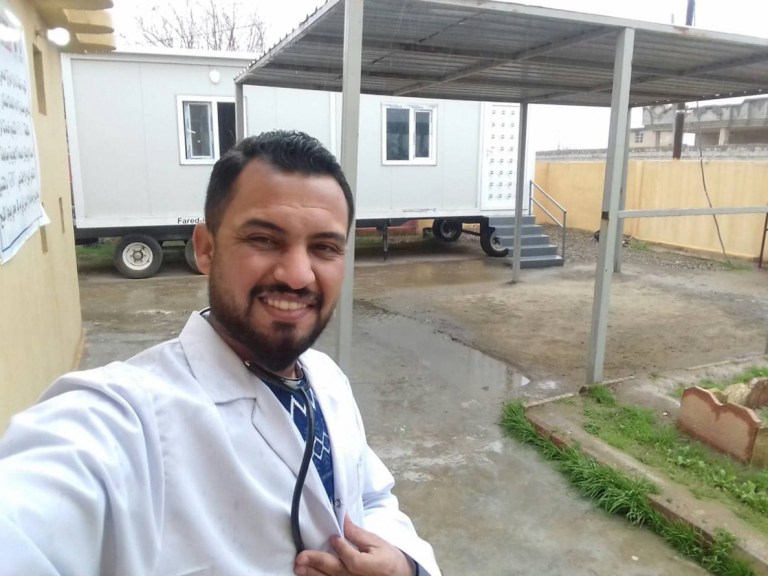
The medical team volunteers to work at this clinic. They don’t have to make the twice-daily river crossing. There are other places they could practice medicine that are easier, and much more convenient.
But they choose this.
They want to serve their people where the help is needed most.

